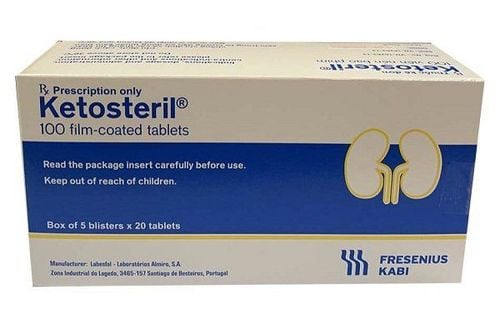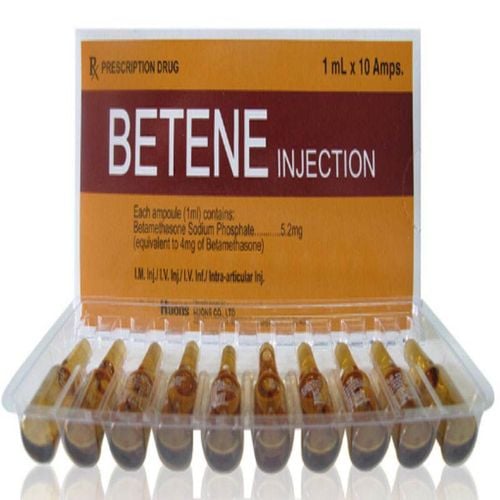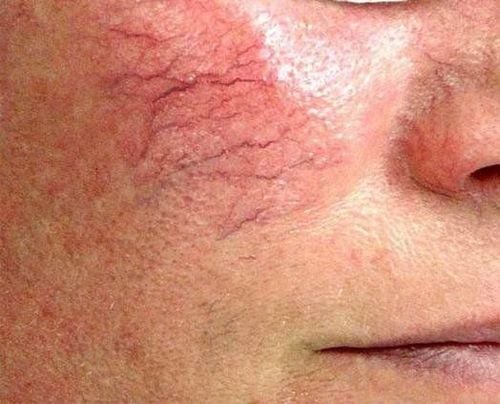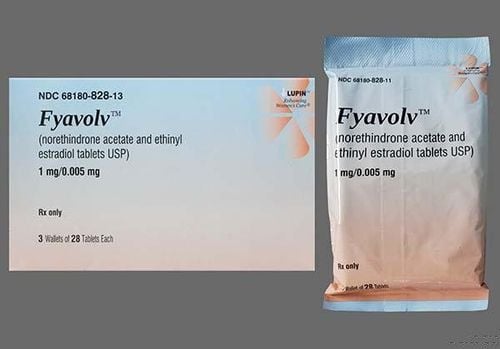This is an automatically translated article.
Alora is used to supplement estrogen deficiency in the female body, and to treat and relieve the symptoms of menopause, osteoporosis and ovarian disorders. Before and during the use of alora, patients need to strictly follow the doctor's instructions to achieve the best treatment results as well as prevent side effects.
1. What is Alora drug?
The drug Alora belongs to the group of drugs with mild sedative and hypnotic effects. This medication, which is the female hormone estrogen, is used to relieve menopausal symptoms such as vaginal dryness or hot flashes caused by low levels of the hormone estrogen in the body. In addition, Alora is also used to treat ovarian disorders and prevent postmenopausal osteoporosis in women.
Alora medicine is made in the form of syrup, patch, lotion or tablet with the main active ingredient being passiflora - an extract from the passion fruit tree. In addition, the drug also includes a number of other pharmaceutical substances such as: stearic acid, iron oxide, crospovidone, povidone, croscarmellose sodium, silicon dioxide and microcrystalline cellulose. In tablet form, Alora has a weight of 100 mg each, for syrup comes packaged in 100 ml bottles.
2. Indications (uses) of alora
Alora medicine is often prescribed by doctors for the following cases:
Used as a sedative for people with neurasthenia, depression, symptoms of stress, nervousness, anxiety, disorders insomnia, perimenopause and menopause in women. Treatment of symptoms of hypertension, palpitations, primary hypertension, post-infectious weakness. Used for women who have lost the ability to produce estrogen due to primary ovarian failure or hypogonadism. Prevention of bone loss and osteoporosis in postmenopausal women. Treatment of ovarian disorders in women. Treatment of skin conditions of the female genitals such as atrophic vaginitis, atrophy of the vulva. Treatment of prostate cancer for men.
3. Dosage and usage of alora
3.1. Dosage of alora For oral Alora tablets
Recommended for children over 12 years old and adults. The sedative effect of the drug is promoted when taking a dose of 1 tablet / time and 3 times / day before meals. Treatment of sleep disorders: Take 2-3 tablets about 3 hours before going to bed. For medicine Alora syrup
Children over 3 years old: Take a dose of 2.5 ml before meals. Children 12 years old and adults drink from 5 - 10 ml (1 - 2 teaspoons) with a frequency of every 8 hours. Dosage of Alora syrup for insomnia is 10 ml. For Alora patches
Apply the Alora patch to clean, dry skin on the hips, lower abdomen, waist or buttocks (avoid cuts or easily irritated areas). Each new patch should be placed in a different position, not on the breasts. If re-gluing the old spot, leave it on for at least 1 week before reapplying to prevent skin irritation. For Alora Topical Cream
Apply Alora to clean, dry skin on thighs and calves for 3 minutes until completely absorbed. After applying, wash and dry hands to avoid getting the medicine on other skin areas. 3.2. How to use the drug Alora How to use the drug Alora will be determined specifically based on the condition of the disease as well as the dosage form of the drug:
Use the drug Alora tablets: Take orally with a large glass of water. Using Alora syrup: Take the dose according to the standard milliliter cup and drink it all right after pouring the medicine. Using Alora patch: Clean and dry the skin before applying alora. Use your hands to gently press the patch to adhere better to the skin. Using Alora cream cream: Clean and dry the skin area to be applied cream, gently apply in a spiral direction for the cream to penetrate into the skin.
4. Some side effects of alora
During treatment with alora, patients may experience some of the following side effects:
Allergic reactions such as hives, rash, swelling of the face/tongue/throat/lips, difficulty breathing. Chest pain, pain spreading to the shoulder and jaw, nausea with sweating. High blood pressure, severe headache, feeling of pressure in the ears/neck, blurred vision, nosebleeds or anxiety. Signs of a stroke such as paralysis of a limb, chest pain, sudden loss of vision, difficulty speaking or loss of balance. Stomach pain. Hemoptisi. Yellow skin/eyes. Pelvic pain. Abnormal vaginal bleeding. The appearance of a breast tumor. Memory problems, unusual confusion. Increased blood calcium levels with symptoms of nausea, constipation, increased urination, increased thirst,... When any of the symptoms mentioned above occurs, the patient should stop taking the drug immediately and report it. to the doctor. If the patient has signs of stroke, relatives need to take first aid measures and take the patient to a medical facility immediately to catch the "golden time" for life-saving treatment. Delayed detection and treatment can be life-threatening.
In addition to the above side effects, Alora can also cause the following problems:
Hair and scalp thinning. Stomach cramps, flatulence, vomiting. Sore throat, sinus pain and stuffy nose. Back/head pain. Vaginal itching, abnormal vaginal discharge. Change in menstrual cycle. Redness or irritation at the site of applying/applying alora. Swelling due to water retention in the body.
5. Some notes when treating with alora
Before using alora, the patient should inform the doctor about his/her current medical condition or any history of allergy to the drug, especially the following:
Unexplained vaginal bleeding . Have a blood clot or stroke. Kidney disease. Liver failure. Coagulation disorders such as protein S or protein C deficiency. High blood pressure. High cholesterol levels in the blood. Hypothyroidism. Lupus. Fat. Uterine problems such as endometriosis and uterine fibroids. Asthma. Gallbladder disease or migraine. Mood disorder. In addition, patients should avoid smoking while using Alora because estrogen when used with tobacco can increase the risk of blood clots, stroke, heart attack and high blood pressure, especially women female over 35 years old.
If you are going to have an MRI, you should also tell your doctor if you are using Alora skin patch. Some patches may contain metal and cause burns during an MRI scan. On the other hand, Alora can also cause dark spots on the skin, so patients need to limit or cover their skin carefully when going out in the sun.
Alora may affect a child's development or growth. Therefore, parents need to consult their doctor carefully before giving this medicine to their children.
Alora is recommended to be avoided by pregnant women to ensure the safety of the fetus. In addition, Alora can be excreted in breast milk, causing a decrease in the quantity and quality of milk. Therefore, nursing mothers should talk to their doctor before taking alora.
6. What drug does Alora interact with?
Interactions between drugs can change how the medicine works and increase the risk of serious side effects. Several drugs may interact with alora, including:
Aromatase inhibitors such as letrozole, exemestane and anastrozole. The drug fulvestrant. The drug raloxifene. The drug ospemifene. The drug toremifene. The drug tamoxifen. Tranexamic acid. Alora may also interfere with some diagnostic tests and easily lead to erroneous results. Therefore, you need to tell your doctor if you are using Alora before having the test.
Follow Vinmec International General Hospital website to get more health, nutrition and beauty information to protect the health of yourself and your loved ones in your family.
Please dial HOTLINE for more information or register for an appointment HERE. Download MyVinmec app to make appointments faster and to manage your bookings easily.
Reference source: drugs.com













